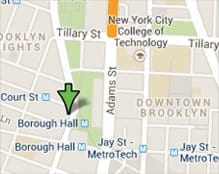Criminal Justice Reform Act lowers some misdemeanors to infractions
New York City’s Criminal Justice Reform Act was signed into law a year ago by Mayor de Blasio. It was largely intended to reduce backlogs in the courts and to cut back on the vast inmate population at Rikers Island.
That effort required about a year’s negotiation between the Mayor’s Office of Criminal Justice and the NYPD, but the results are in. Now, low-level misdemeanors such as public drinking and public urination will be charged as civil infractions, which carry no jail time. Instead, these are more like traffic tickets and could at most result in a fine or community service for the average offender.
However, if the person ticketed is on parole or has been arrested twice in the past two years for felony crimes, the police could still charge the minor crimes as misdemeanors.
Last year alone, as many as 90,000 people were detained or received criminal summonses for drinking in public. Around 18,000 faced detention or summonses for public urination. If those numbers are taken as a rough average, the new law could keep some 108,000 people per year out of the criminal justice system.
That also means they won’t be put in the position of losing their jobs or housing because they can’t get released from pre-trial detention in a timely fashion, or because they can’t afford bail.
Immigrants, especially, should benefit from the reduction in severity
Although the new rules were in negotiation long before Donald Trump was elected president, some of his anti-immigrant rhetoric and policies may have made the negotiations go more smoothly. That’s because immigrants, legal and unauthorized, often face outsized risks from arrest.
Depending on the nature of the offense, even a misdemeanor conviction can result in deportation, even for lawful permanent residents. Moreover, merely getting hauled into pretrial detention can result in an immigration status check, which may be followed up by U.S. Immigration and Customs Enforcement.
The “broken windows” policing policy promulgated by former Mayor Michael Bloomberg resulted in the NYPD focusing a great deal of its attention on low-level crimes. The NYCLU and the Legal Aid Society have argued that the policy tended to unnecessarily expose immigrants to deportation when other New Yorkers faced few consequences.
The drop in severity from misdemeanor to infraction means these cases will be handled civilly instead of criminally.
“In the civil system, there is no chance of immigration consequences,” notes the deputy director of the Mayor’s Office of Criminal Justice.
Office Location
Neil S. Ruskin
188 Montague Street Suite 900
Brooklyn, NY 11201
Local: (718) 237-1547
Fax: 718-875-4011












